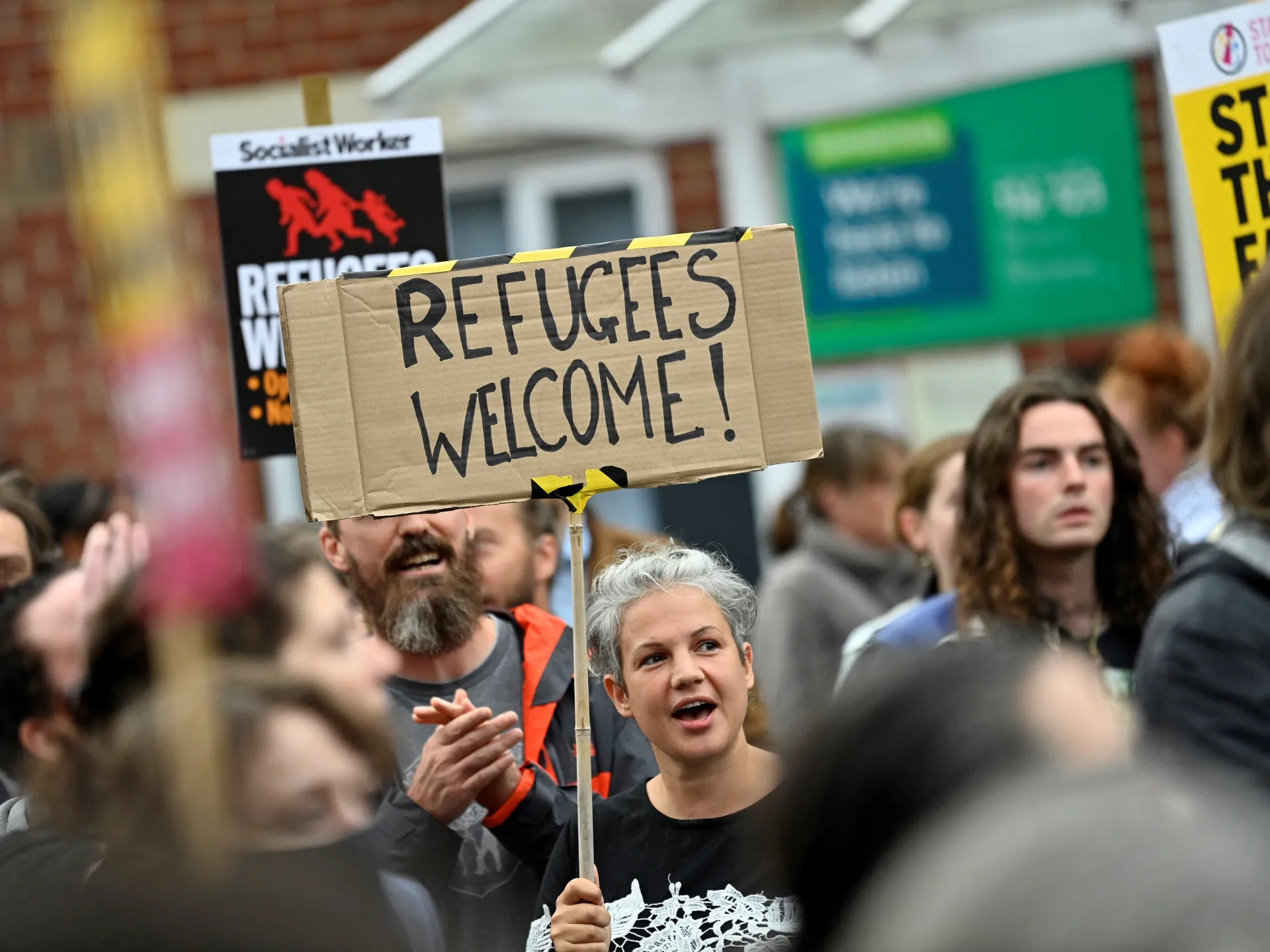Britain experienced heightened tension on Wednesday as police and anti-racist campaigners prepared for potential right-wing riots in neighborhoods with large immigrant communities. In response to fears of violence, authorities deployed significant police forces across several areas.
However, the number of anti-immigrant demonstrators in north London neighborhoods like Finchley and Harrow was small compared to the hundreds of counterprotesters who gathered to show support for refugees and condemn racism.
In east London’s Walthamstow, a much larger crowd of over 5,000 anti-right protesters rallied, chanting messages of love and inclusivity. Similar peaceful demonstrations in support of refugees were held in other major cities, including Birmingham and Liverpool. The commissioner of the Metropolitan Police Service credited the substantial police presence and community solidarity for preventing the feared right-wing disorder.

Britain Braces for Unrest as Anti-Racist Rallies Counter Far-Right Protests
Despite the overall peaceful nature of the protests, several arrests were made in various locations. In south London’s Croydon and Waltham Forest, individuals were detained for offenses ranging from violent disorder to weapons possession. London’s Mayor Sadiq Khan commended the peaceful protesters and praised the police for their efforts in maintaining order.
The recent unrest stemmed from a false rumor that a Muslim asylum-seeker was responsible for a knife attack in Southport, where three young girls were killed. This misinformation incited right-wing mobs to launch attacks on hotels housing asylum-seekers, as well as on mosques and libraries, leading to widespread arrests. It was later revealed that the suspect in the Southport stabbing was a local teenager, not an asylum-seeker.
Authorities across Britain took extensive measures to prevent further violence, with thousands of officers deployed, increased prison capacity, and the use of surveillance technology.
In Merseyside, near Southport, additional arrests were made as police cracked down on what they described as violent disorder organized by far-right groups. These groups have been using online platforms to spread inflammatory messages, which have contributed to the ongoing unrest.
The situation presented an early challenge for Prime Minister Keir Starmer and his newly elected Labour government. Although the Labour Party’s recent election victory was decisive, the surge in far-right activity, which split the right-wing vote, underscored the deep divisions within British society.
These divisions are further exacerbated by economic struggles and social issues, including a cost-of-living crisis and rising child poverty, which continue to challenge the nation.























